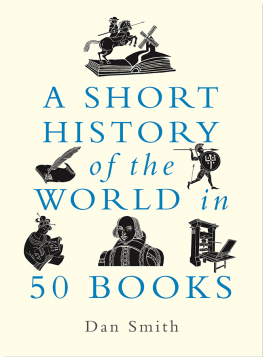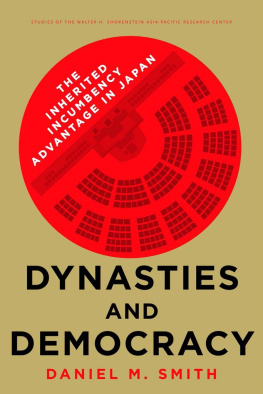To Be a Man Is Not a One-Day Job
To Be a Man Is Not a One-Day Job
Masculinity, Money, and Intimacy in Nigeria
Daniel Jordan Smith
The University of Chicago Press
CHICAGO & LONDON
The University of Chicago Press, Chicago 60637
The University of Chicago Press, Ltd., London
2017 by The University of Chicago
All rights reserved. No part of this book may be used or reproduced in any manner whatsoever without written permission, except in the case of brief quotations in critical articles and reviews. For more information, contact the University of Chicago Press, 1427 E. 60th St., Chicago, IL 60637.
Published 2017
Printed in the United States of America
26 25 24 23 22 21 20 19 18 17 1 2 3 4 5
ISBN-13: 978-0-226-49151-6 (cloth)
ISBN-13: 978-0-226-49165-3 (paper)
ISBN-13: 978-0-226-49179-0 (e-book)
DOI: 10.7208/chicago/9780226491790.001.0001
Library of Congress Cataloging-in-Publication Data
Names: Smith, Daniel Jordan, 1961 author.
Title: To be a man is not a one-day job : masculinity, money, and intimacy in Nigeria / Daniel Jordan Smith.
Description: Chicago : The University of Chicago Press, 2017. | Includes bibliographical references and index.
Identifiers: LCCN 2017017536 | ISBN 9780226491516 (cloth : alk. paper) | ISBN 9780226491653 (pbk. : alk. paper) |ISBN 9780226491790 (e-book)
Subjects: LCSH: MenNigeriaSocial conditions. | MasculinityEconomic aspectsNigeria. | MoneySocial aspectsNigeria. | Igbo (African people)Social life and customs.
Classification: LCC HQ1090.7.N6 S65 2017 | DDC 305.3109669dc23
LC record available at https://lccn.loc.gov/2017017536

This paper meets the requirements of ANSI/NISO Z39.48-1992 (Permanence of Paper).
To Aunt Liz, Uncle Henry, Aunt Judy, and all the Jordan clan
Contents
Beginning in the 1980s, nearly every Sunday morning, twenty to twenty-five men gathered at Owerri Sports Club to play tennis. By early afternoon, when the sun was high in the sky and the heat too oppressive for an enjoyable game, the focus shifted from sports to beer and boisterous conversation. Most of these same men also gathered many weekday evenings after work, sometimes to play tennis, but always for a night of drinking and masculine banter. The club had over two hundred members but the regular presence of a core group of about fifty assured that at least a couple dozen men congregated every day. The club was a quintessentially Nigerian space of male intimacy. Many of the men had been meeting there several times a week for years. They shared with each other their lives and thoughtsabout work and family, religion and politics, community and country. I joined the club in 1989, not long after I first arrived to work on a public health project in Owerri, the capital of Imo State. I originally joined because I love to play tennis, but I soon found myself enmeshed in the full spectrum of social activities that being a member could involve.
One typical Sunday I joined about twenty men under the shade of a tree as we began the regular rituals associated with the transition from tennis to beer and the lively conversation that inevitably accompanied it. On Sundays, the members always asked the same man to mark the official beginning of drinking. They seemed never to tire of the way he pretended that the first bottles of beer were candlesticks that needed to be blessed as if the men were in church. Indeed, everyone jovially referred to this man as our Bishop to acknowledge the shared fun of the mock religiosity of the proceedings. Nearly all, if not all, of these men were Christians who believed in God. Some even went to church before coming to the club. The playful performance was not meant to disparage Christianity or challenge the existence or importance of God. Instead, it was a conscious celebration by the men of being at the club rather than in church or at home with their wives and children, places where aspects of their masculinity that they enjoyed at the club were held in check or even challenged. In the playful ritual to open their Sunday drinking, the men asserted the importance of their status as men and the privileges that came with it.
Owerri Sports Club was a place where an elite segment of the citys adult male population had created a masculine community in which some of the most valued qualities of being men were celebrated and rewarded. It was not just sport and drink, though they thoroughly enjoyed both. At the club, men found a space where they could converse about and congratulate each other for their successesin business and politics, in providing for their families, and very often in their extramarital sexual behavior (which was one example of an arena of male privilege they could celebrate at the club, but not at home or at church). These were successful men. Yet even as the club seemed to be place where men basked in successful masculinity, it was also a domain where they spoke frequently and candidly about the challenges and contradictions of manhood.
One evening, early in my first year as a member of the club, a man named Uche (all peoples names are pseudonyms) was recounting the recent ordeal of burying his father, emphasizing the exorbitant amount of money he spent to provide a befitting funeral. Befitting was an English term that was particularly common, resonant, and meaningful among the majority of Igbo-speaking people in southeastern Nigeria, who regularly switched between and mixed English and their vernacular. Men were preoccupied, indeed even obsessed, with making sure that they provided for and performed befitting rituals of the life course, such as child naming ceremonies, weddings, and funerals; that they built a house befitting their status (especially a proper building in their natal community, even if they almost never lived there); that their children be given befitting educations and their wives be provided befittingly fashionable clothing for church and the many other public occasions that animate Nigerian social life.
Uche bemoaned the escalating expectations society put on people to spend lavishly on burialsexpenses that included not only huge amounts of food and drink, but also the hiring of electric generators, sound systems, performers, and tents and chairs; all carefully, if implicitly, calculated and evaluated based on whether the expenditures befit a familys, and especially a mans, status. One of the many expenses Uche had borne was hosting the club at the funeral. We showed up about fifty in number and it was expected that Uche would make sure we could eat and drink until we could take no more. He did exactly that. We each contributed to an envelope of cash to support the burial, but it did not nearly cover even just what Uche spent on us. At the same time that Uche was telling a story of lament about the costs of burials, and his mates were chiming in sympathetically with their own analogous experiences, they also rewarded him for the very behaviorand expendituresthat they all seemed to grumble about. Crates of beer were called for to celebrate Uches successful performance and the men advised and praised Uche, saying: You are now fully a man because you have successfully buried your father.
In this conversation, and in countless others I heard over the years, the men at the clublike men I interacted with in just about every other male-dominated setting in Nigeriaconstantly fretted about the ever-increasing demands for money that were required for a befitting performance of manhood. Yet, seemingly paradoxically, men also constantly reinforced in each other the very behaviors that reproduced the valorization of money. After several rounds of beers, Uche summed up the situation with a common phrase Nigerian men shared among themselves, an expression uttered with both pride and lament: To be a man is not a one-day job. When Uche spoke these words the other men all agreed, laughing, but also corroborating the ambivalent sentiment about the challenges of manhood.


 This paper meets the requirements of ANSI/NISO Z39.48-1992 (Permanence of Paper).
This paper meets the requirements of ANSI/NISO Z39.48-1992 (Permanence of Paper).









